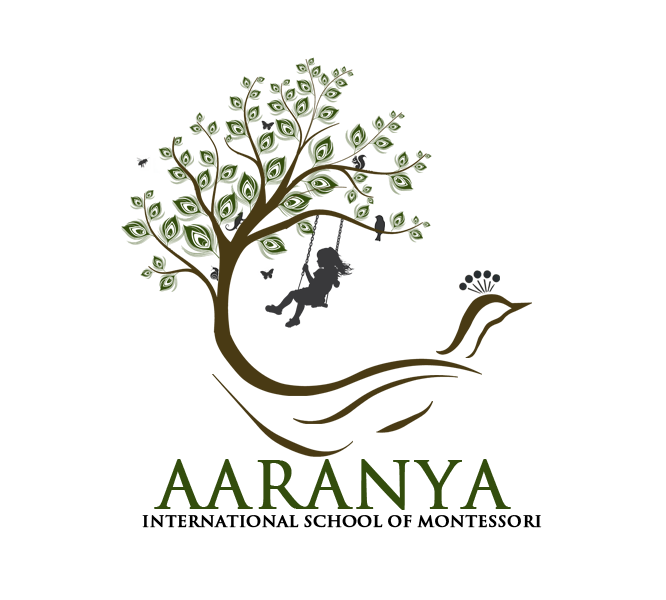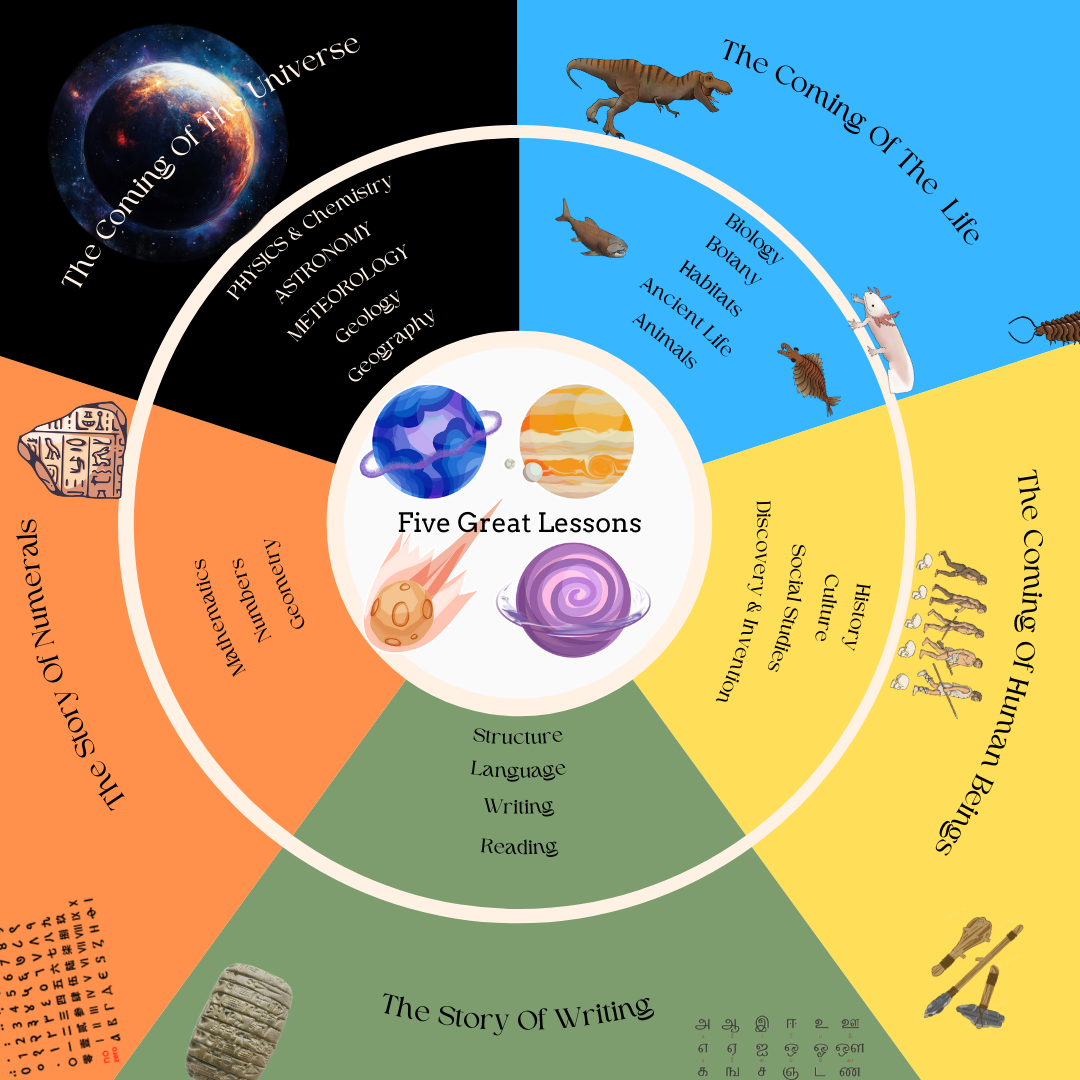
Lower & Upper Elementary (6-12 Years)
The Montessori Lower and Upper Elementary syllabus focuses on holistic, hands-on learning to nurture curiosity, critical thinking, and independence.
In Lower Elementary (6–9 years), language includes grammar basics, vocabulary building, reading comprehension, and creative writing. Mathematics covers advanced arithmetic, fractions, geometry, and real-life word problems. Cultural studies introduce history through Great Lessons, physical geography, and basic science like botany and zoology. Grace and Courtesy lessons emphasize social behavior, conflict resolution, and environmental respect, while Practical Life activities focus on advanced motor skills, gardening, and cooking.
In Upper Elementary (9–12 years), language expands to essay writing, literature analysis, advanced grammar, and etymology. Mathematics progresses to algebra, geometry concepts like area and volume, and complex problem-solving. Cultural studies deepen with a focus on civilizations, ecological studies, and science experiments in physics, chemistry, and biology. Grace and Courtesy lessons build leadership and mentoring skills, while Practical Life includes entrepreneurial projects and community engagement. Both levels integrate Cosmic Education, emphasizing the interconnectedness of subjects and the universe, and use Montessori materials for hands-on, individualized learning.

The Story of the Universe
The Story of the Universe Introduces the origin of the cosmos, planets, and natural laws, inspiring children to explore physics, chemistry, and astronomy.
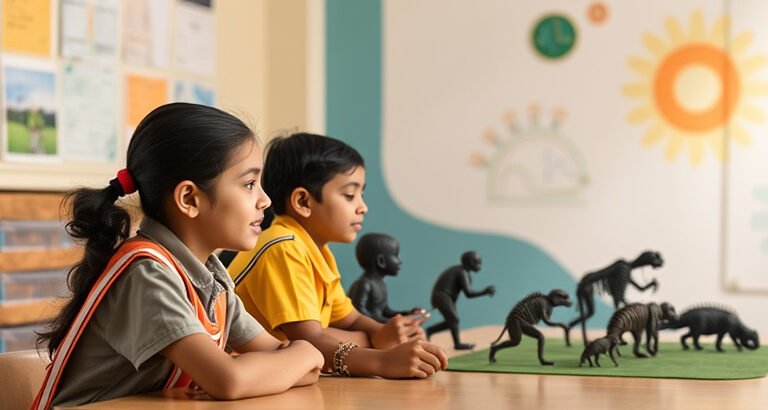
The Story of Life
The Story of Life covers the evolution of life on Earth, from simple organisms to complex beings, prompting studies in biology and ecology.
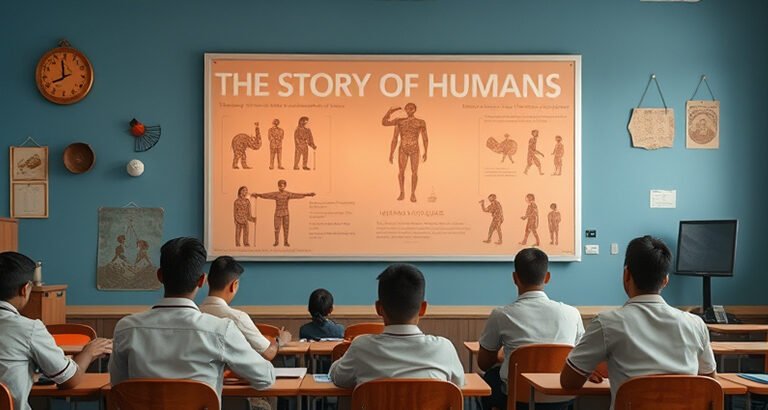
The Story of Humans
The Story of Humans highlights the development of human civilizations, inventions, and cultures, paving the way for history and anthropology.

The Story of Language
The Story of Language shows the journey of communication from early symbols to modern languages, linking to studies in reading, writing, and linguistics.
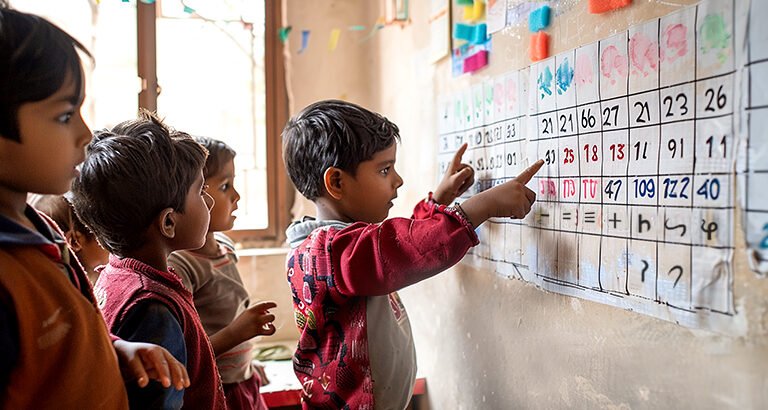
The Story of Numbers
The Story of Numbers traces the history of mathematics, inviting children to explore numbers, operations, and mathematical concepts.
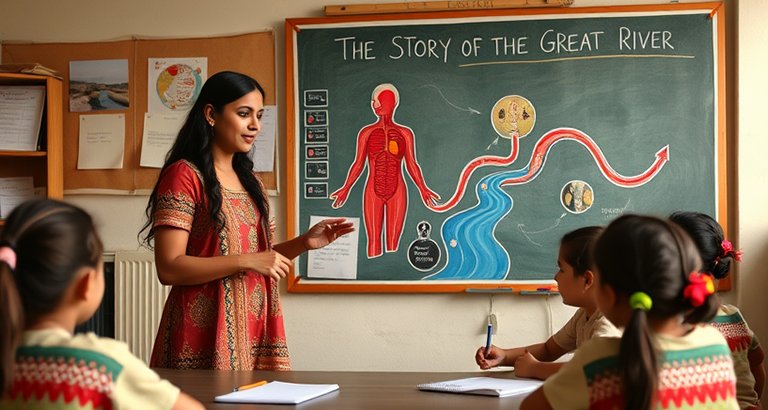
The Story of the Great River
The Story of the Great River is a Montessori analogy that represents the blood flow in the human body. It illustrates how the blood, like a river, carries nutrients, oxygen, and waste products throughout the body, sustaining life and maintaining balance. This story helps children understand the circulatory system in a vivid and relatable way.
Choose a pricing
Our Young Pre classroom is for ages. This age group is working on developing their fine and gross motor skills, that are gaining independence and developing their social skills through play.
Our eager children have a real thirst for learning and our excellent staff team are committed and dedicated in ensuring that each and every child achieves. We have high standards and expect the best.
| Subject | Integration Approach | Examples & Projects |
|---|---|---|
| History | Subjects like History are integrated with Tamil Nadu’s rich cultural heritage. |
|
| Geography | Lessons focus on Tamil Nadu’s diverse landscapes, ecosystems, and agricultural practices. |
|
| Science | Science connects with local ecology, native flora, and fauna, focusing on sustainability. |
|
| Traditional Craft-Making | Children connect with cultural roots through hands-on craft activities. |
|
| Local Art Forms | Art projects expose children to traditional Tamil styles and dance. |
|
| Agriculture & Gardening | Practical farming experiences teach children about agriculture. |
|
| Handloom & Weaving | Children learn traditional weaving skills, inspired by Tamil textiles. |
|

